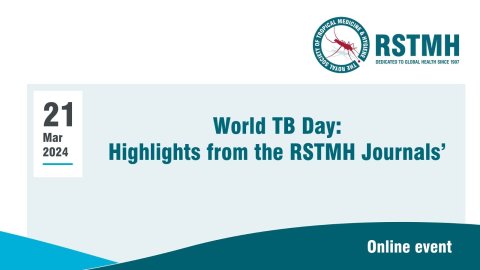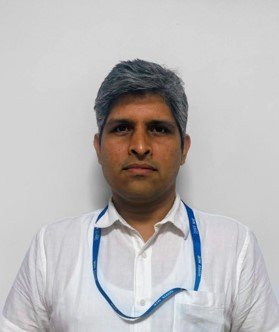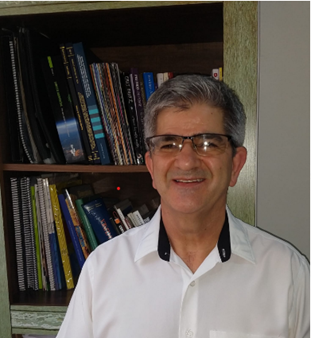Online Event - World TB Day: Highlights from the RSTMH Journals’

On Thursday 21 March 2024, 1 - 2.30pm GMT, RSTMH will be hosting an online event in honour of World TB Day occurring at the end of the week. This webinar will focus on the theme of the day: Yes! We Can End TB and will use the RSTMH Journals to highlight learnings and evidence from TB research.
World TB Day, falling on March 24th each year, is designed to build public awareness that tuberculosis today remains an epidemic in much of the world, causing the deaths of nearly one-and-a-half million people each year, mostly in developing countries. It commemorates the day in 1882 when Dr Robert Koch astounded the scientific community by announcing that he had discovered the cause of tuberculosis, the TB bacillus.
The event will feature four presentations from Speakers who have published in the RSTMH Journals and will be Chaired by Dr Stefanie Meredith, Editor-in-Chief of International Health.
Programme:
- Are informal healthcare providers knowledgeable in tuberculosis care? A cross-sectional survey using vignettes in West Bengal, India, Dr. Poshan Thapa, Postdoctoral Fellow, McGill University's - School of Population and Global Health, Canada. Read the article here.
- Fast, simple and cheap: method modified from conventional cultivation for tuberculosis diagnosis allows seeding on Löwenstein–Jensen of any swab-embedded pulmonary samples decontaminated with sodium hydroxide, Ronaldo Rodrigues da Costa. Read the article here.
- Screening adults with tuberculosis for severe illness at notification: programme experience from Gujarat, India, Dr Hemant D Shewade, Scientist E, Division of Health Systems Research, ICMR-National Institute of Epidemiology (ICMR-NIE), Chennai, India. Read the article here.
- In the footsteps of Albert Calmette: an ecological study of TB, leprosy and potential exposure to wild-type Mycobacterium bovis, Prof Jacques Pepin is an emeritus professor at the Université de Sherbrooke in Canada. Read the article here.
Speaker Biographies:
Dr. Poshan Thapa

Dr. Poshan Thapa is currently a postdoctoral fellow at McGill University's - School of Population and Global Health, Canada. He completed his PhD at the University of New South Wales, Australia (2018-23), and his MPH at Manipal University, India (2011-13). Previously, Dr Thapa served in Nepal as the Director of Research and Evaluation (2014-17) and District Director of Community Healthcare (2017-18) with Possible and as a Lecturer at Pokhara University (2014). He has authored over 25 peer-reviewed publications, and his research focuses on tuberculosis care, informal healthcare providers, primary care, and private-sector engagement.
Dr Hemant D Shewade

Scientist E, Division of Health Systems Research, ICMR-National Institute of Epidemiology (ICMR-NIE), Chennai, India. Hemant is a medical doctor specializing in community medicine and operational research. He has 12 years (post MD) experience in community/public health and operational research. His area of work is building capacity in and conducting operational research within national health programme settings. He facilitates (as a senior mentor) in the WHO TDR endorsed Structured Operational Research Training IniTiative (SORT IT) courses. He led the India Central TB Division commissioned national level TB active case finding evaluation study (2022-24) and co-leads two statewide differentiated TB care initiatives to reduce TB deaths: Tamil Nadu Kasanoi Erappila Thittam (TN-KET) and Delhi Triage and Treat TB (D-TAT). His passion lies in strengthening primary health care and community action for health. He has more than 170 publications, including 4 book chapters with a h-index of 24
Professor Jacques Pepin

Jacques Pepin is an emeritus professor at the Université de Sherbrooke in Canada. His research interests included, over his long career: African trypanosomiasis, HIV-2 infection, sexually transmitted infections, Clostridium difficile, and the role of colonial-era medical interventions in spreading blood-borne pathogens. He is the author of The Origins of AIDS (Cambridge University Press), the definitive history of the early stages of the HIV pandemic. In his presentation, he will first review how the BCG vaccine was developed, and then present recent data which suggests that exposure to wild-type M. bovis might explain the profound geographic variations in the effectiveness of the BCG.
Dr. Ronaldo Rodrigues da Costa

Pharmacist-Biochemist, Clinical Analyst, Ronaldo has a degree in Pharmacy and Biochemistry from the Federal University of Juiz de Fora - UFJF (1994), a specialist in Microbiology from the Pontifical Catholic University of Minas Gerais (1997) and in Clinical Analysis from UFJF (2004). Master in Health Sciences, Infectious and Parasitic Diseases, Laboratory Diagnosis of Tuberculosis from the State University of Montes Claros (2012). PhD in Health Sciences from the Postgraduate Program in Health at UFJF (2018). He works as an Administrative Technician in Education, Pharmacist-Biochemist, in the Clinical Analysis Laboratory of the UFJF University Hospital, since 2002 and Management and Health Care Analyst, Biochemist, in the Laboratory of the João Penido Regional Hospital – FHEMIG, since 2004, both located in Juiz de Fora, Minas Gerais, Brazil. “He is currently the coordinator of the Project Development and evaluation of a new fast, efficient and low-cost method of decontamination and cultivation of Mycobacterium tuberculosis in sputum and other clinical specimens”.